Exotic pets have gained popularity over the years, offering a unique and fascinating alternative to traditional pets.
These animals, often originating from wild environments, require special care and a significant commitment from their owners.
Below, we explore the characteristics of some of the main exotic pets, providing an overview for those considering adopting one of these intriguing creatures.
1. Ferrets

Ferrets are exotic pets known for their vibrant energy and curious nature. They are small carnivorous mammals belonging to the weasel family, and their intelligence makes them very interactive pets.
These little animals are playful, but they can also be a bit stubborn, requiring owners willing to invest time in training and socialization.
One of the most striking features of ferrets is their tendency to hide in small spaces, which necessitates a living environment that is safe and free of potential hazards.
They need plenty of space to explore and play, and it is essential to provide mental enrichment to avoid boredom. Despite their small size, ferrets demand constant attention and supervision.
Additionally, ferrets have a specific diet that must be rich in proteins and fats, typically consisting of ferret-specific kibble or a well-balanced raw diet.
As exotic pets, they also have unique veterinary needs, including regular vaccinations and dental care. The lifespan of ferrets is approximately 6 to 10 years, which means they can be long-term companions.
2. Guinea Pigs

Guinea pigs, although common in some areas, are considered exotic pets due to their diversity of colors, breeds, and temperaments.
They are small rodents native to South America, known for their gentle nature and ease of handling, making them an excellent choice for families and beginners in exotic pets.
These animals are highly social and prefer to live in pairs or groups, which requires their owners to be prepared to keep more than one guinea pig.
They communicate through a variety of sounds, including squeaks and purrs, expressing different emotions. The ideal environment for a guinea pig is spacious, with access to hiding areas and toys to stimulate their minds.
The diet of guinea pigs mainly consists of hay, fresh vegetables, and a specific guinea pig food rich in vitamin C, which is essential for their health.
As exotic pets, they have a lifespan of 4 to 8 years, and it is crucial to ensure they receive regular veterinary care to prevent common illnesses, such as dental issues and nutritional deficiencies.
3. Hedgehogs
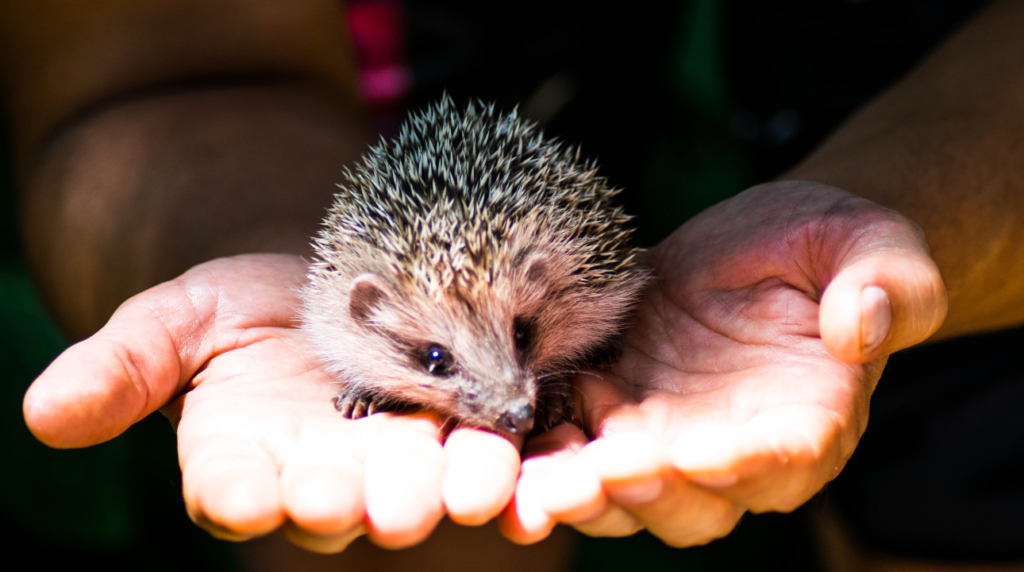
Hedgehogs are small nocturnal mammals that have become increasingly popular as exotic pets. They are easily recognized by their short, stiff spines, which help them defend against predators.
While they may seem intimidating at first glance, hedgehogs are generally gentle when handled correctly and with patience.
These animals exhibit solitary behavior, preferring to spend time alone in their hiding spots. They do not require much social interaction but enjoy activities like exploring new environments or playing with toys.
As exotic pets, hedgehogs need a specific diet, usually consisting of hedgehog kibble, insects, and small pieces of fruits and vegetables.
In addition to their dietary needs, hedgehogs require a safe and heated habitat, as they are sensitive to temperature changes. The lifespan of these small mammals is typically 3 to 6 years, although they can live longer with proper care.
To maintain the health of hedgehogs, regular veterinary care and good hygiene are also necessary, including cage cleaning and ensuring their nails are well-kept.
4. Lizards
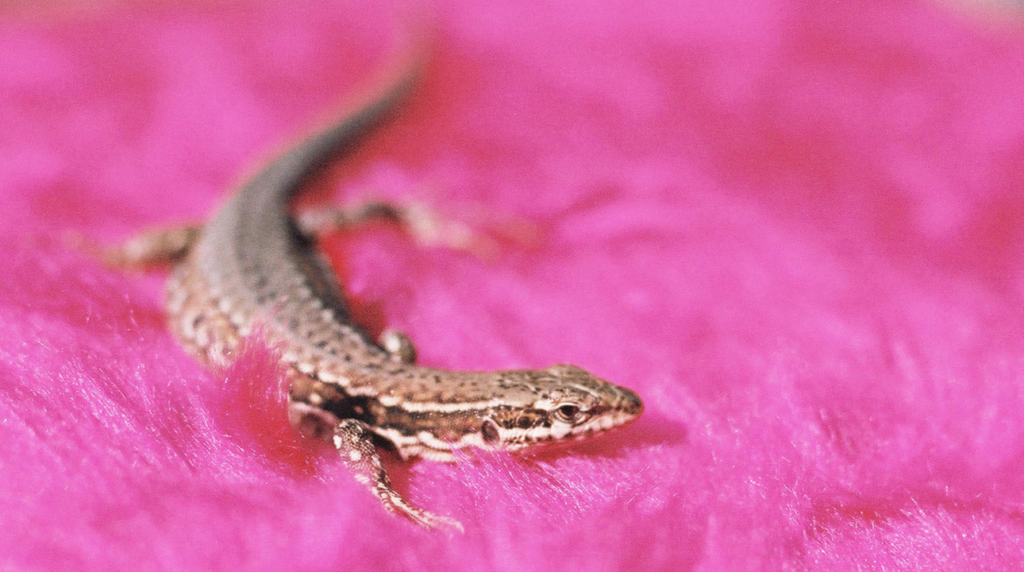
Lizards are some of the most popular exotic pets, attracting enthusiasts for their unique characteristics and the wide variety of species available for keeping.
Iguanas, geckos, and bearded dragons are among the most common lizards kept as pets, each with its own care needs and behaviors.
These reptiles can be fascinating, offering a pet-keeping experience that combines observation and limited interaction.
Lizards require well-controlled habitats that mimic their natural environments, including appropriate temperature, humidity, and lighting.
For instance, iguanas need large terrariums with branches and platforms for climbing, as well as UVB lighting for vitamin D3 synthesis.
Bearded dragons, on the other hand, require a dry environment with hiding spots and areas to bask under specific lights, which aid in digestion and overall health.
The diet of lizards varies by species. Iguanas, for example, are herbivores and need a diet rich in greens and fresh fruits, while bearded dragons are omnivores, consuming both vegetables and insects like crickets and larvae.
As exotic pets, lizards have considerable longevity, living from 10 to 20 years or more, depending on the species.
Keeping a lizard requires a commitment to maintaining an appropriate habitat and a balanced diet, along with regular visits to a veterinarian specialized in reptiles to ensure their health and well-being.
5. Snakes

Snakes are among the most fascinating exotic pets, captivating enthusiasts with their sleek appearance and silent behavior.
Many species, such as pythons and corn snakes, are popular among pet owners due to their relative ease of care and generally docile temperaments.
Snakes do not require much social interaction, making them a good option for those who prefer a low-maintenance pet.
These reptiles need a specific habitat, with a well-sealed terrarium that maintains the appropriate temperature, humidity, and lighting to simulate their natural environment.
The diet of snakes typically consists of rodents, such as mice and rats, which can be offered live or frozen, depending on the species and the owner’s preferences.
Feeding snakes is a task that occurs infrequently, usually every one or two weeks, depending on the size and species of the snake.
Snakes as exotic pets can live for long periods, with some species living over 20 years. It is essential for owners to be prepared for this long-term commitment, as well as for the specialized veterinary care that may be needed throughout the snake’s life.
As exotic pets, snakes are quiet and discreet, but they require careful handling and respect for their predatory nature.
6. Turtles

Turtles are very popular exotic pets, both aquatic and terrestrial species. Known for their long lifespans and distinctive appearances, turtles can be long-term companions, with some living over 50 years.
They are generally calm in nature, making them ideal for those who prefer a pet that does not require much interaction.
Aquatic turtles, such as red-eared sliders, need an environment that combines land and water, with enough space to swim and a dry area to bask.
UVB lighting is crucial for the health of these turtles, as it aids in vitamin D3 synthesis, necessary for calcium metabolism.
Terrestrial turtles, like tortoises, need ample space to move around and a diet rich in vegetables, fruits, and vitamin supplements.
Maintaining turtles as exotic pets involves paying attention to water quality for aquatic species and to the temperature and humidity of the environment.
Additionally, it is important to monitor the health of turtles regularly, as they can be susceptible to respiratory issues and nutritional deficiencies.
With proper care, turtles can become long-lasting members of the family, offering a serene and fascinating presence.
7. Exotic Birds (Macaws, Parrots, Cockatoos)
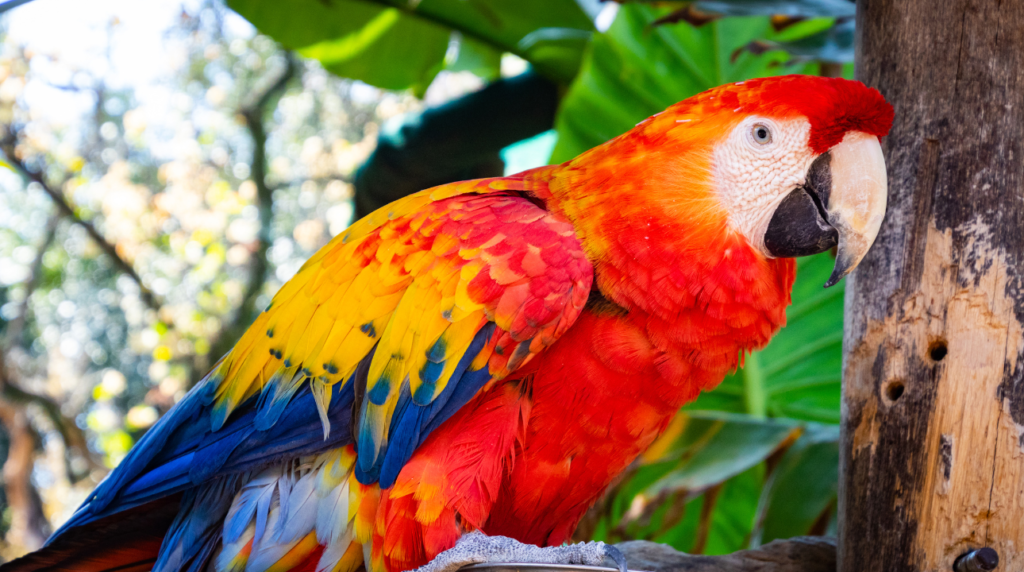
Exotic birds like macaws, parrots, and cockatoos are known for their stunning beauty, intelligence, and communication skills.
These exotic pets are popular for their vibrant colors and ability to mimic sounds, including human speech. However, their care requires a significant commitment, as they can live for several decades and need constant interaction.
Macaws, for example, are large and majestic, requiring spacious environments to fly and play. They form strong bonds with their owners and need daily attention to remain happy and healthy.
Parrots, on the other hand, are smaller but equally intelligent and can be taught tricks or commands.
Cockatoos are known for their affectionate personalities and the distinct crests they raise when excited or scared. Like all exotic birds, they require a balanced diet of seeds, fruits, vegetables, and vitamin supplements.
Keeping these exotic pets in an enriched and social environment is crucial to avoid behavioral issues like stress or self-mutilation.
8. Exotic Fish
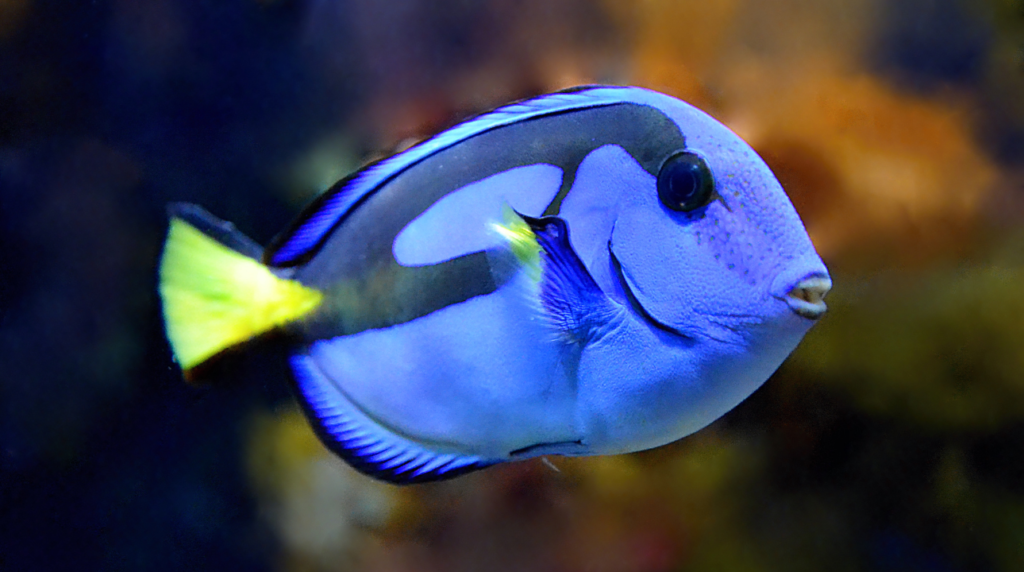
Exotic fish, such as bettas, piranhas, and discus fish, are a popular choice for aquarists looking to create a vibrant and diverse aquarium.
These exotic pets offer an opportunity to establish a small ecosystem at home, where aesthetics and biology intersect.
Each species has its own needs in terms of space, water temperature, pH, and feeding.
Bettas, for instance, are known for their vibrant colors and long, flowing fins. They are relatively easy to care for but require a well-filtered environment and consistent water quality.
Piranhas, on the other hand, are voracious predators and need larger tanks with a protein-rich diet, usually consisting of smaller fish and meat.
Discus fish are considered the “kings of the aquarium” due to their beauty and unique rounded shape. They require a more specific environment, with higher temperatures and slightly acidic waters.
As exotic pets, fish can live from 2 to 10 years, depending on the species, and maintaining a healthy aquarium involves constant water monitoring, proper feeding, and tank population control.
9. Spiders and Scorpions
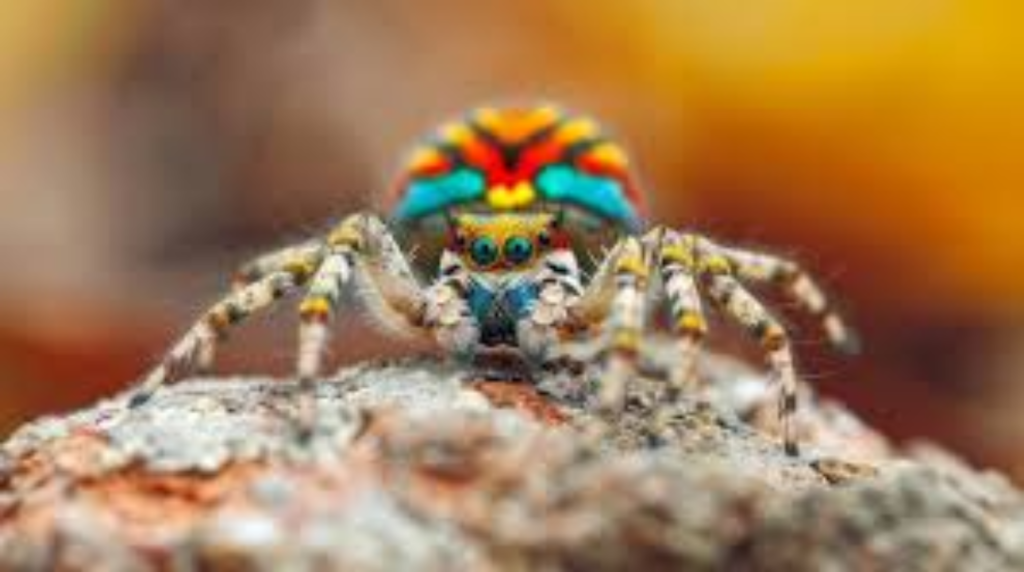
Spiders, such as tarantulas, and scorpions are exotic pets that attract invertebrate enthusiasts with their fascinating appearances and unique behaviors.
These animals are generally quiet and require little space, making them ideal for those with limited room but who want an unusual pet.
However, they are not for everyone due to their venomous nature and intimidating appearance.
Tarantulas, for example, are known for their hairy legs and large size. They are typically solitary and nocturnal animals, preferring to spend their time in their hiding spots during the day.
These exotic pets have a simple diet, primarily consisting of insects like crickets and cockroaches, and require a terrarium with controlled temperature and humidity.
Scorpions, like the emperor scorpion, are exotic pets that impress with their robust appearance and reserved behavior.
They need a habitat that simulates their natural environment, with hiding spots and appropriate substrates.
The lifespan of spiders and scorpions can vary, but they generally live from 5 to 10 years, depending on the species and the care provided.
10. Primates
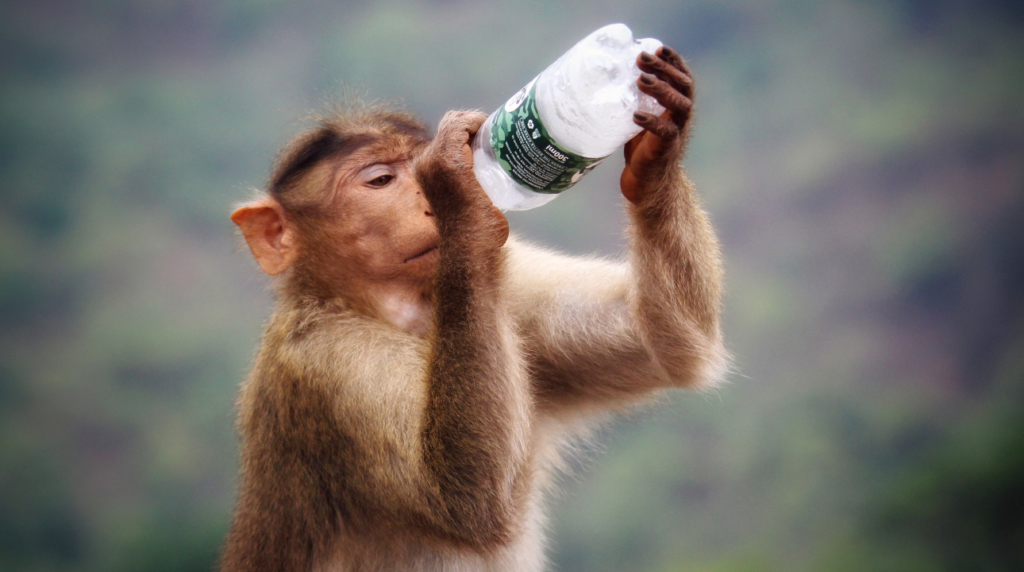
Primates, such as marmosets and tamarins, are exotic pets that attract attention due to their intelligence and complex social behaviors.
These small primates are known for their natural curiosity, rich facial expressions, and advanced motor skills, making them fascinating to observe and interact with.
However, caring for a primate is a serious commitment, as they require a highly enriched environment and constant attention.
These animals are extremely social and, in the wild, live in groups. This means that primates kept as pets need continuous interaction, whether with humans or other animals.
Isolation or lack of stimulation can lead to destructive behaviors or depression, making daily socialization essential.
Additionally, primates like marmosets need a habitat that closely simulates their natural environment, with branches for climbing and spaces to explore.
The diet of primates is varied and should include fresh fruits, vegetables, insects, and, in some cases, specially formulated primate food. They also require vitamin supplements to maintain good health.
As exotic pets, monkeys can live from 15 to 20 years, and maintaining their health involves specialized veterinary care, along with a lot of patience and dedication from the owner.
Keeping a primate requires a long-term commitment and a deep understanding of the physical and emotional needs of these highly intelligent animals.
Before adopting any exotic pets, check if they are recognized by Ibama as animals that can be kept as domesticated. For more topics like this, visit SalvePet.
Conclusão
Adopting exotic pets can be an enriching experience, offering the chance to live alongside unique and fascinating creatures.
However, caring for these animals requires knowledge, commitment, and dedication to ensure they have a suitable environment and responsible handling.
Whether it’s a lizard, snake, turtle, or even a primate, each species has specific needs that must be respected to preserve its health and well-being.
Before choosing an exotic pet, make sure you have the resources and time necessary to meet these special demands. With the right care, these animals can become long-term companions, bringing beauty and diversity to your life and home.
